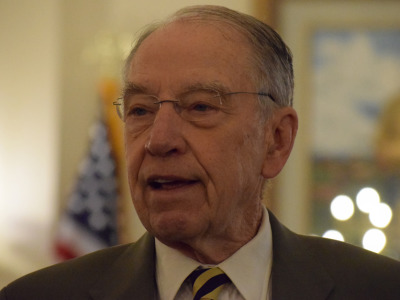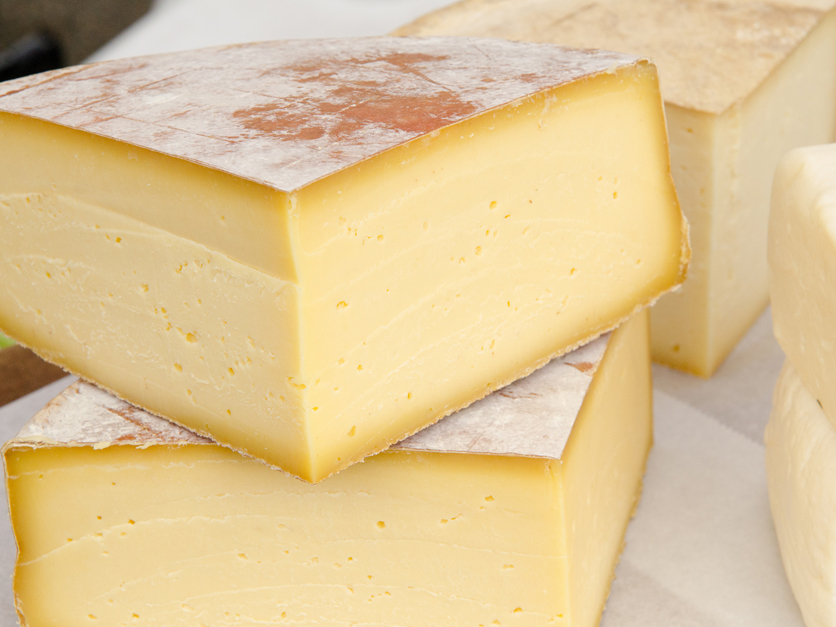With a deal in place between the newly independent UK and the European Union, American ag groups are anxious to see the U.S. complete its own free-trade agreement with the British as the Biden administration prepares to take the reins in ongoing talks.
The U.S. ag sector is adamant that as the UK divorces itself from the EU, it also stops agreeing to European protections for food names and ditches the EU’s anti-biotech stance as well as other policies that restrict ag trade.
The U.S. and UK officially announced the start to negotiations for a free-trade agreement in May of last year, but those talks aren’t likely to wrap up until the incoming Biden administration gets a chance to put its imprint on the deal.
Senate Finance Committee Chairman Chuck Grassley said Tuesday he heard some optimism last month that President Donald Trump could be able to sign off on a trade pact with the UK before he leaves office, but he stressed that is unlikely.
“I’d be surprised if it’s completed by then,” Grassley told reporters. “I’m sure that people in the Biden administration want to have some input on it.”
British Trade Secretary Liz Truss confirmed that a trade pact with the U.S. is still a priority, but the last round of talks between the two countries was in October and the next — the sixth round — has not yet been scheduled.

Sen. Chuck Grassley, R-Iowa
Furthermore, there is a lot that negotiators have not yet addressed in the months of talks, according to U.S. government officials. Both countries have been tight-lipped about details of the talks, but officials tell Agri-Pulse that none of the sanitary, phytosanitary and food safety issues that separate the two governments have been resolved.
If those issues can be resolved in a free-trade agreement, the U.S. will have to act quickly, even during the transition to the new administration. European leaders are expected to continue to press the British to conform, while there’s no guarantee that the U.S. Congress will succeed in reestablishing Trade Promotion Authority before it expires in July next year.
TPA, also known as “fast track” authority, allows the president to ensure a trade deal will be signed into law without the threat of Congress amending it. But any pact must be submitted for consideration 90 days before it’s signed, and that means the deadline for a UK trade agreement would actually be in April.
Speed will be paramount, said Grassley, who advised the incoming Biden administration not to “diddle around.”
“It’s probably more needed by the UK than it is by the United States,” he added “but it would be nice if both of them got it done. I want to get it done.”
Meanwhile, U.S. negotiators still have a long way to go if they are to get the UK to agree to reject EU-style bans on beef and pork from animals that have been treated with growth hormones or ractopamine. And British negotiators still have not agreed to the import of U.S. poultry.
The UK, like the EU, effectively bans U.S. poultry because of the common practice of using antimicrobial rinses to prevent salmonella contamination. That’s one of the key British policies that Trump administration officials like U.S. Trade Representative Robert Lighthizer has promised to address.
“All along the Trump administration was very supportive of making sure that poultry would be treated fairly and would get full access like any other U.S. commodity,” Jim Sumner, president of the USA Poultry and Egg Export Council, tells Agri-Pulse.
But it hasn’t yet been addressed and will likely fall to the incoming administration under Biden’s nominee to be U.S. Trade Representative, Katherine Tai.
“It will be a challenge for the incoming administration to get it done and get it done right,” says Sumner, who also stressed he is optimistic.
Interested in more news on farm programs, trade and rural issues? Sign up for a four-week free trial to Agri-Pulse. You’ll receive our content - absolutely free - during the trial period.
When it comes to geographic indications — the European scheme to restrict the use of names for certain foods like cheeses — the U.S. dairy sector has already suffered a blow. The UK, as part of the Brexit deal, already agreed to keep GI protections that were in place on Dec. 31. That means U.S. producers won’t be able to sell or market cheeses labeled as Gorgonzola, Fontina, Gruyere, Havarti, Asiago, Feta and dozens more, according to a British government database of products.

Jim Sumner, USAPEEC
But it’s still not too late to get the UK to resist agreeing to further GI protection demands from the Europeans, says Jaime Castaneda, executive director of the Consortium for Common Food Names and an executive with the U.S. dairy industry.
“It wasn’t 100% what we wanted, but it wasn’t totally a disaster,” Castaneda told Agri-Pulse.
The U.K. imports about $3 billion worth of cheese, butter and skim milk powder annually, but almost all of that comes from its European neighbors. Only about $9 million worth of the products come from the U.S. because of EU tariffs and GI restrictions.
“The British are the largest importer of cheese in the world,” said Castaneda. “The problem is they import about 95% from Europe.”
Still, if the U.S. manages to secure an aggressive FTA with the UK that sharply cuts tariffs and staunches British acceptance of new GIs, Castaneda says there will be opportunity for U.S. producers and exporters.
“We definitely believe that we can do well,” he said. “We can actually get a piece of that.”
It’s a message that Castaneda says the dairy industry is stressing to the incoming Biden administration.
One member of that administration who will be particularly in tune with dairy’s concern is Tom Vilsack. Vilsack is expected to reprise his role as Ag Secretary — a job title he carried for most of the Obama administration before leaving to be president and CEO of the U.S. Dairy Export Council.
Vilsack, testifying on behalf of USDEC at a House Agriculture Committee hearing in 2017, railed against the EU’s global push to expand GI protections.
“If we’re going to increase exports — and our goal is to try to get from 15% of our volume to 20% of our volume — cheese is going to be incredibly important,” he said. “If we allow the Europeans to monopolize certain terms of cheeses, that will create no market competition. That will make it difficult to market much of what we produce in this country.”
For more news, go to www.Agri-Pulse.com.


